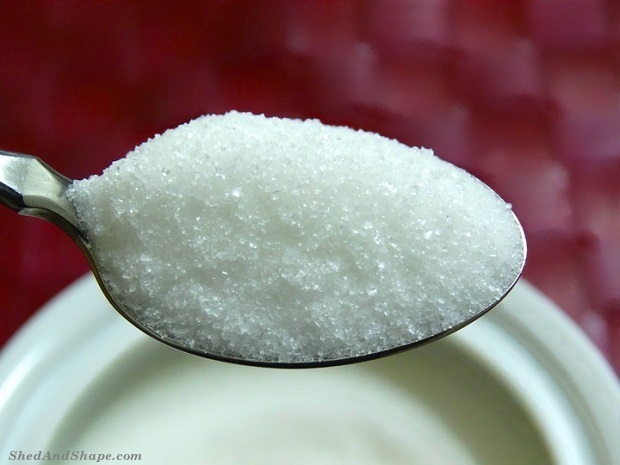Have you heard of the zero carb Allulose Sweetener? I only came across it recently which is hardly surprising as I discovered that although it’s being used in some products in America it has not been approved for use in Europe yet. I was interested to find out more about it so if you are too then read on.
As you probably know when following low-carb diets like keto, sugar being high in carbohydrate and calories must be avoided. So, if you are going to make anything that needs sweetening, you’ll have to use some sort of sugar substitute.
Artificial sweeteners are not good for a number of reasons so we have to look to so called natural alternatives.
These sweeteners must have zero to only a few carbs and calories so you’ll not be kicked out of ketosis. This newish sweetener allulose was launched as a syrup onto the market by Tate & Lyle as Dulcia Prima in 2015 and as Crystalline Allulose in 2017.
It’s growing in popularity and is said to be so much better than Stevia and other sugar substitutes. Let’s find out what allulose is and if it’s ideal for your keto diet.
What Is Allulose Sweetener?
Allulose is a naturally occurring rare sugar found in a few foods that has almost zero calories. It is similar to erythritol, another popular zero calorie sugar for keto since both are 70% as sweet as sugar.
Unlike Stevia and other sweeteners that have a bitter aftertaste, allulose is said to taste exactly like the regular sugar cane. According to Dr. Keith T. Ayoob, an Associate Clinical Professor at the Dept. of Pediatrics in Albert Einstein College of Medicine,
“It measures pretty much like sugar and behaves in foods like sugar, so you can cook with it and preserve many of the structural properties that sugar brings, but without the calories.”
Because the body will only utilize an extremely small amount of allulose for energy, the caloric implications from consuming it are quite minor. It may be 70% as sweet as sugar, but it only has 0.3% of energy. Manufacturers do, in fact, refer to allulose as a “zero-calorie” sweetener.
Is Allulose Good for Keto?
Because allulose has extremely low sugar content, it’s becoming popular among low carb dieters, including those following the ketogenic lifestyle. Allulose is great for keto and other low carb diets. This natural sweetener will not raise your insulin level, so it’s perfect if you have diabetes or following the ketogenic diet.
A 2018 study conducted by the Dept. of Nutritional Sciences of the University of Toronto has assessed the effects of allulose and fructose on blood glucose in terms of regulating diabetes. Participants were randomly assigned to either fructose or allulose treatments.
“Researchers found out that small doses of allulose showed significant reductions in plasma glucose in individuals with type 2 diabetes, compared to fructose.”
As it turns out, those who were given the allulose have notably reduced their blood sugar level by 8% while those who took the fructose have shown no effect.
In another study done on rats, allulose was found to only contain 0.007 kcalories per gram, contrary to what some companies claim that it’s a zero calorie sweetener. Nevertheless, allulose is still ideal for low carb diets since it’s not metabolized and does not break down into glucose. It’s extremely low calorie.
Another advantage over some of the other alternative sweeteners is that it is unlikely to cause digestive upsets as the sugar alcohols like erythritol does.
Adding Allulose Sweetener to Your Keto Diet
There are many ways in which you can add allulose to your keto diet. Unlike erythritol, this sweetener does not seem to crystalize. It’s therefore suitable for low carb dessert recipes.
Remember that although allulose appears to be safe, it may have a different effect from one person to another. Others might find that they are sensitive to it and would prefer other low carb sweeteners.
When integrating allulose into your low carb diet, it’s recommended to do it slowly and to add it in small increments to your recipes. Begin with a lower dose and gradually increase depending on your body’s reaction to it.
Conclusion
Allulose is a great alternative to some of the other low carb sweeteners but like anything new, it must be approached with caution. There are not enough studies carried out on humans for this sweetener, most especially in terms of its long-term effects. As mentioned, it is best to start on a low dose and assess how your body responds.
If you are going to give it a try them as some of it is made from corn make sure it’s GMO free like this one.










